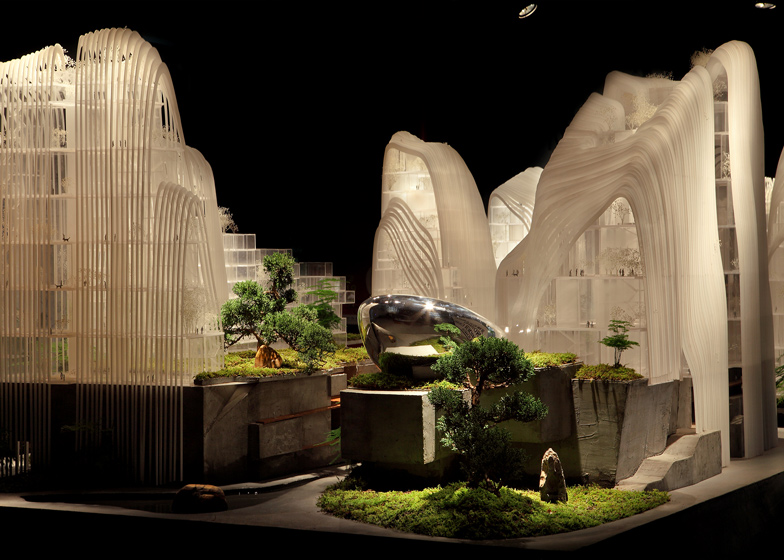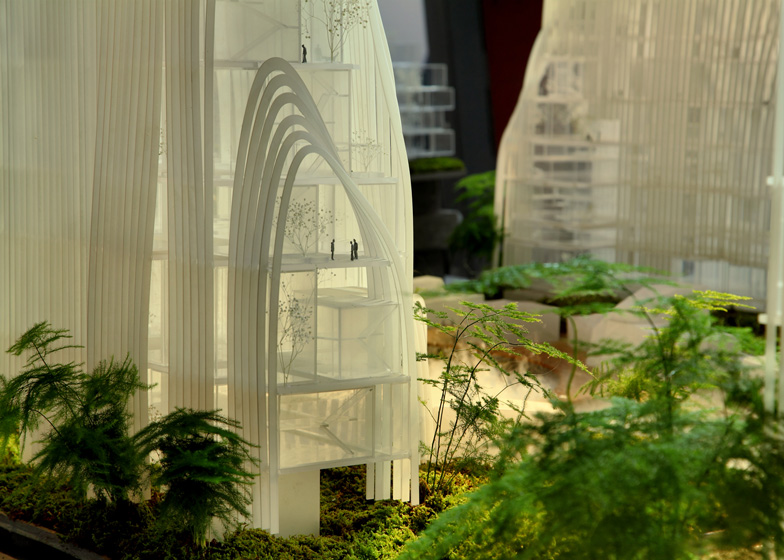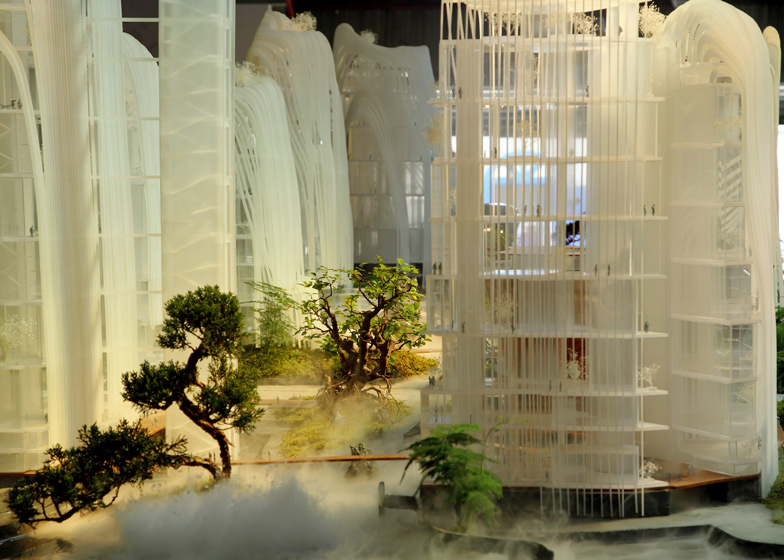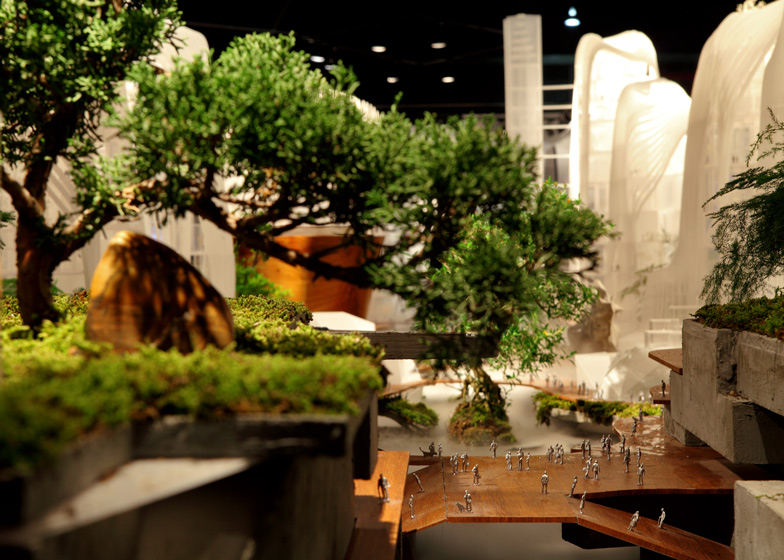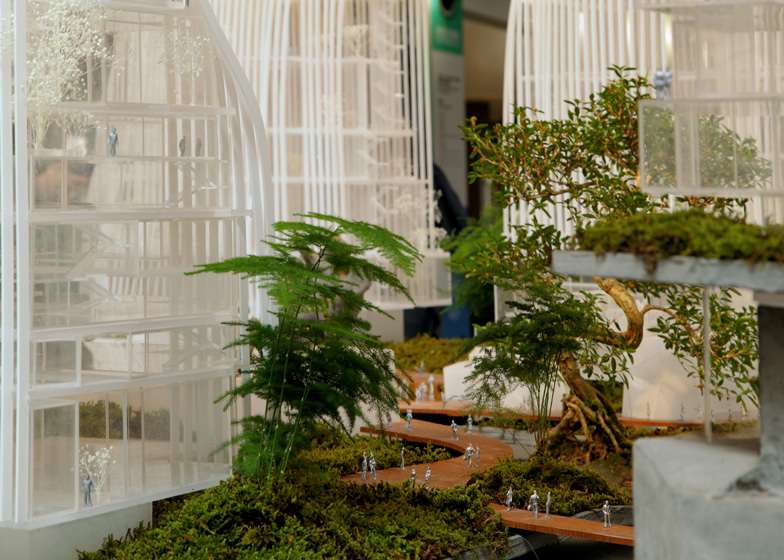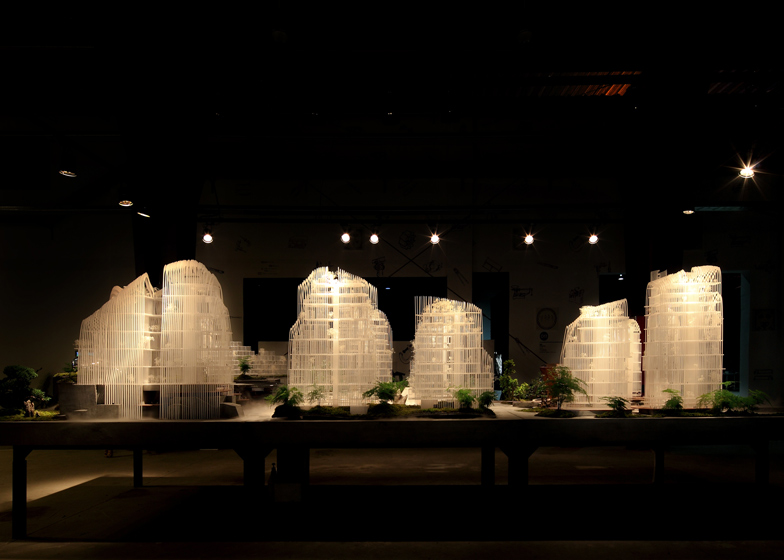Ma Yansong of Chinese studio MAD presents a masterplan for Nanjing, China, where buildings are designed to look like mountains and public spaces overlap with the natural landscape, as part of the Shenzhen and Hong Kong Bi-city Biennale of Urbanism\Architecture.
The Nanjing Zendai Thumb Plaza proposal is the latest in a series of projects by MAD based on Yansong's Shan-Shui City concept - an urban strategy based on a style of Chinese landscape painting and named after the Chinese words for mountains and water.
The masterplan, which encompasses an area of approximately 60 hectares, envisions an assortment of buildings and spaces that mediate between the city's urban centre and its surrounding landscape of mountains and lakes.
"We need to rethink how to define the boundary between the nature and the urban on this piece of empty plot in the new city development area," says MAD. "Is it possible to combine the high-density city with the atmosphere of the nature to create an energetic urban public space for the future, so people will reconnect their emotion with the nature?"
Expected to complete by 2017, the masterplan includes a set of high-rise buildings with unique curving profiles intended to avoid the "height competition" associated with most skyscrapers.
At ground level, pathways and plazas will be integrated with a mixture of manmade and natural landscaping.
Yansong is exhibiting a scale model of the proposal at the Border Warehouse in Shenzhen for the Shenzhen and Hong Kong Bi-city Biennale of Urbanism\Architecture 2013.
Here's a project description from MAD:
Ma Yansong Featuring 'Nanjing Zendai Thumb Plaza' in Bi-City Biennale of Urbanism\Architecture 2013 in Shenzhen
Ma Yansong presented his work, 'Shanshui Experiment Complex' in the Border Warehouse of Bi-City Biennale of Urbanism\Architecture 2013 in Shenzhen. This is an artwork in-between architecture model and landscape installation, created based on MAD's latest project, 'Nanjing Zendai Thumb Plaza'. The total area of this urban design project is about 600,000 sqm and it is expected to be completed in 2017.
The historic city Nanjing is famous for the mountain and water landscape around the city, as well as its modern prosperities. With the culture, nature and history considered, we need to rethink how to define the boundary between the nature and the urban on this piece of empty plot in the new city development area. Is it possible to combine the high-density city with the atmosphere of the nature to create an energetic urban public space for the future, so people will re-connected their emotion with the nature?
The installation approaches those issues by creating a green open space spreading on the ground level of the city, where the natural and man-made landscape cross over with each other, existing in different dimensions both indoors and outdoors. The clear boundary of the site thus becomes blurred. While walking to their urban destination, people will feel as if they are sometimes walking in the nature. Above that, a series of buildings rise in the fog with flowing lines, changing smoothly as integrity, resolving the vertical power and the height competition, and the city skyline that used to be controlled by technology and power is now back to the artistic mood of faraway-so-close that our ancients have perceived in the nature.

